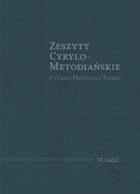НАБЛЮДЕНИЯ ВЪРХУ СИНТАКТИЧНАТА
РЕАЛИЗАЦИЯ НА ПРЕДИКАТИ
ЗА ЕМОЦИОНАЛНИ СЪСТОЯНИЯ
Observations on the Syntactic Realization of Emotional Predicates
Author(s): Yovka TishevaSubject(s): Language and Literature Studies, Theoretical Linguistics, Syntax
Published by: Wydawnictwo Naukowe Uniwersytetu Marii Curie-Sklodowskiej
Keywords: Bulgarian language; emotional verbs; Experiencer verbs; syntactic structure; arguments; complements
Summary/Abstract: The object of the analysis in the following paper are sentences with verbs for emotions (psychological verbs, Experiencer verbs) in the modern Bulgarian language. The main goal is to present the syntactic realization of arguments to the verb obicham (to love) as representative of the syntactic features of the verbs for positive emotions. The selective restrictions for the realization of the arguments are determined by lexical semantics and thematic structure of the predicates. For psychological verbs, the subject is marked with the thematic role Experiencer, and the complements are either Theme (Object of emotion) or Stimulus. The external complement of the transitive verb obicham (to love) is marked as Theme and represents object – specific, generic, as well as propositional one, to which the emotional relationship is directed. Observations show that in the subject position, in addition to nouns denoting animate objects, names of specific inanimate or abstract objects can also be used. Da-clauses are the main means for the realization of object complements to the verb obicham. In certain contexts, subordinate clauses with free relatives can also be used.
Journal: Zeszyty Cyrylo-Metodiańskie
- Issue Year: 10/2021
- Issue No: 1
- Page Range: 114-136
- Page Count: 23
- Language: Bulgarian

